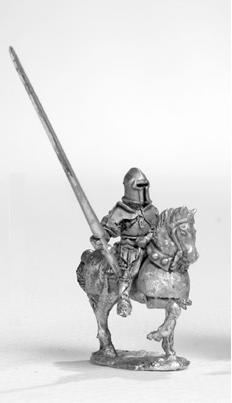Venice
The Venitian republic- jewel of God, sturdy and strong, friend to many, enemy to few.
the republic had thus far withstood the ravages of war, and while at first slowlly loosing terrtirtor and troops, a short lived allianced had turned the tide in venice favor- Vebice would reclaim the lands of Sicilly for god!
It was true that tejh old king had "dissapered" and his son had assumed the throne, and while the staus of heritic had been lifted from the monarchy itself, were not the nobels who had supported the heritic still in power? were not the soldires who supported the heritic still fighting? the answer was a reosunding yes, and venice knew what it must do- It would have to fight the Sicillians in the name of God.
To this end, several holy fighting orders had rallied to venice call, but the group known as the templars was a magnificent force indeed- fighting with the stregth of lions in name of venice, the pope, and then glory of god, it was thier order that had grown closest ot he venetians, and once the war was over, would be supremelly rewarded for it.
what would be the reward? the Templar order was to be merged with the nation of Venice- the holy order would be gaining the full support of nation, with the many thousands of inhabitiants of it, and the great resources and finaces behind it, th ekind of resources and finances that only Venice, master of the trade in europe could muster- with trade routs strtching from the black sea to scandinavia, Venitian goods were almost as common as Veneitian merchants, who would often assume the role as middle man between two nations transactions- take the current embargo of english merhcants by the French nation- France was large nation, and its nobels were demanding the high quality english wool, amoung other good the nation had to offer, and England had turned desperate to sell those good in turn- and the resourceful Venitian merchants were making the best of that situation in full- it was venitian merchants who were nowing buy the traded goods of England at bargin prices- and moreover, sellign them at profit to the french people, desperate to get those goods- England got money, france got goods, and venitian wealth and influence faorwarded by great strides in the region- everyonw was happy with the arrangment.
though back to the reward of the templars

the new adminstration was to look somthing liek this- Vneice was to still be a republic, but the new structure of the republic was designed to offer fairness ot the local populace, but also ensure that vneice had its national will worked over all of its lands.
each Province would have a council of 12 men centerd in the largest city of the province, 6 of these men would be local officals, elected to the coucli by the populace, 6 others would be elected by the venetian senate to go to the province, and forward the policies of Venice, more over, there was technically a 13th member, agian electe dby the local poipulace to go serve inthe national senate of Venice (Venice would have two senates, the peoples senate AKA Peoples assembly, and the national senate both would be presided by the either the top official of the republic, who current tile would be that of Doge) but thw reward for the templars? it would be a prominat member of the templars whou would be the military commander of the each province, and moreover, troops recruited in each province would abide by the templar creed and ethos, and so would count fully as soldires of the order, and be fullyfledges soldires of Veneice as well, gaining the pioty and holyness of the order, and retianing the mightyness of the lone republic.
In Ventian society, Vneice was undergoing a great rebirth! Years ago Vbeice had claimed it was to be the reignited flam of civilization in the west, a beacon for all nations to the civilized might of ancient Rome- abnd to that end, the people of Vneice had set out to make a completely new lifestyle for themselves, based on the model of classical greece, and Imperial Rome- scholars long went abroad to Roman, and to Constantinople, some even perilingthe dangers of the islamic world to visit alexandria, and the other great cities now occupied by the hethens, all gethering long forgotten knowldge, the old epics, technology, architecture, legends, histories, books, artifacts of the ancient ways, bringing them to Venice, to re-ignite the flames of old, and to that end, it was working, Vebice was under going a renaissance that could only be described as the "classical rebirth", and it was over taking Venice by storm, people strived to do things the classicla manner, and in no way was this more blatantlly visible then the art, and architecture of venice- everyhting from soldires armor to massive buildings of the church or of the state all had a classical twist to them, wehter it be the great palace of the dige, or the mighty Venetian cataphract...

The fearsoem venetian cataphract, weel armed, armored, rianed and motivated, they are ready to tak eon all threats to Venetian security, and the threats Venice deems it worthy to fight for



